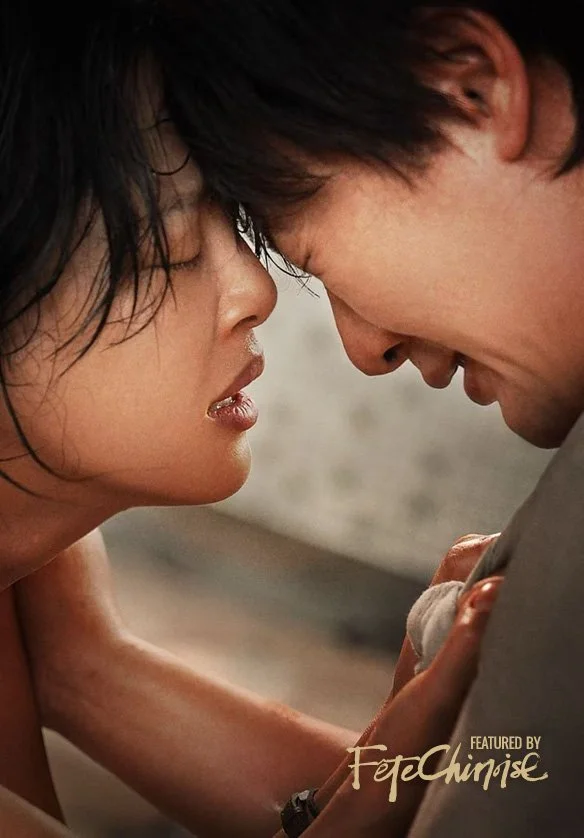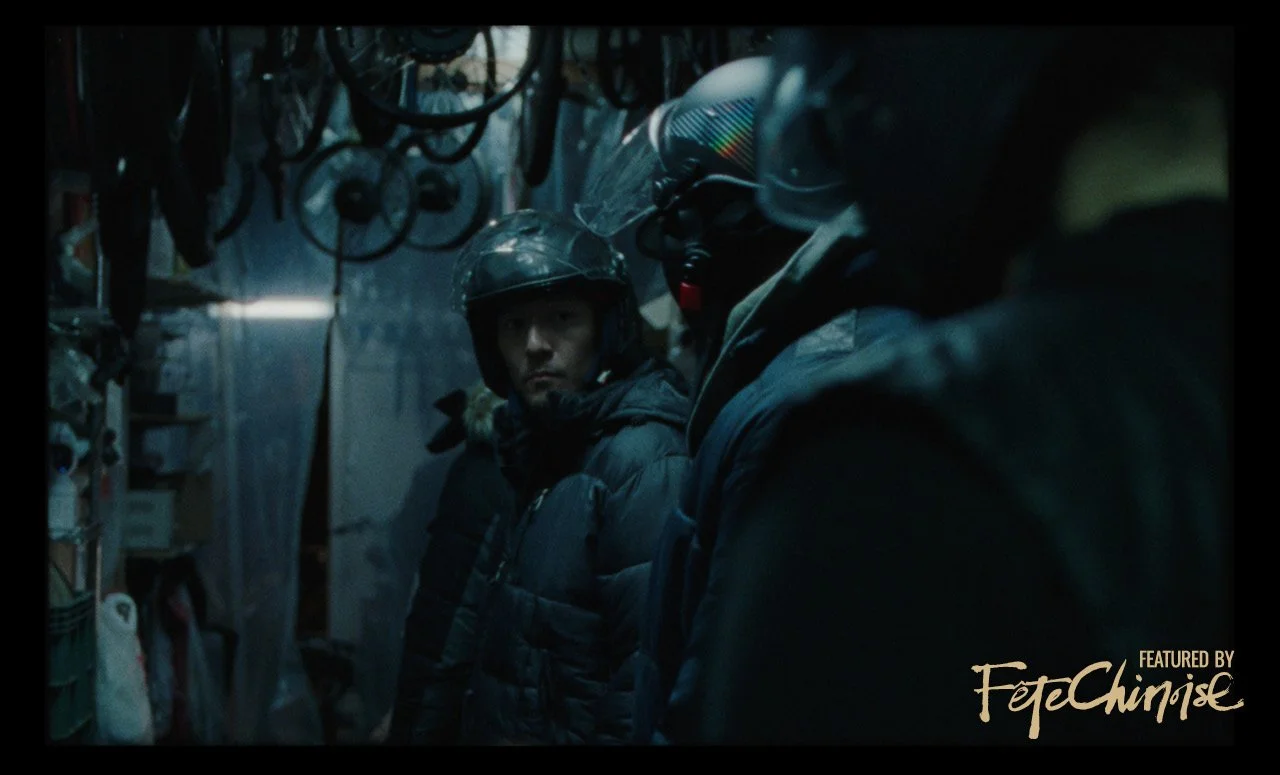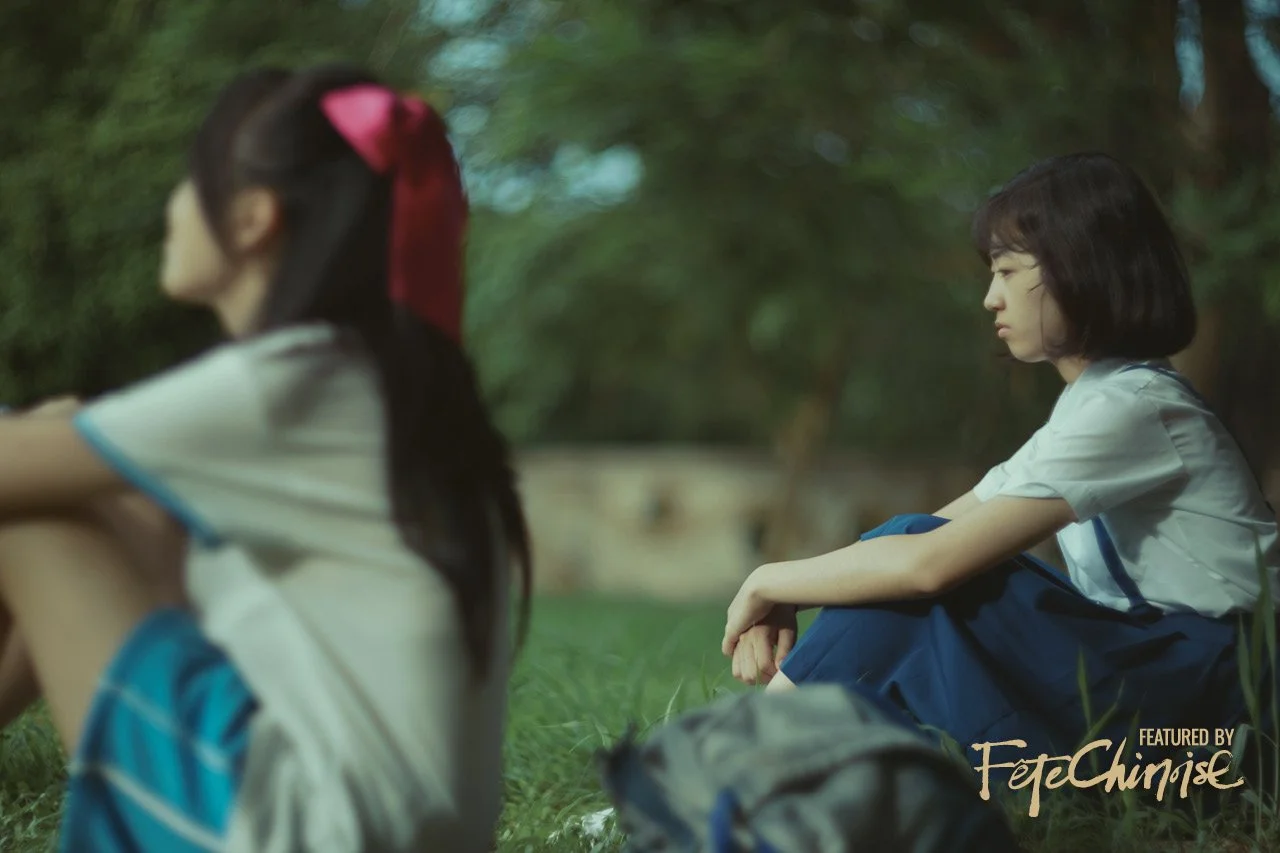Unfolding Stories: A First Look at Asian Cinema at TIFF 2025
Exploring love, loss, identity, and defiance in a powerful lineup of Asian films.
Written by Nirris Nagendrarajah
Images Courtesy of TIFF
Fête Chinoise Editorial Team: Deborah Lau-Yu, Kayla Lo
TIFF 2025 has officially begun, and with it comes a powerful slate of Asian cinema that is already leaving a lasting impression.
In this first roundup, we look at five standout films: The Sun Rises on Us All, Palimpsest: The Story of a Name, Lucky Lu, Amoeba, and Girl, each distinct in tone and style, yet deeply connected by emotional resonance and cultural reflection.
These stories span geographies and genres: from Guangzhou’s aching past to the immigrant realities of New York, from the haunting intimacy of family trauma to the rebellion of young women pushing against systemic constraint. Some films confront generational wounds or buried identities; others capture moments of quiet survival or poetic self-reinvention.
The layered storytelling is introspective, political, and deeply human. They reflect the diversity and complexity of what it means to be Asian today, while offering a window into personal experiences that transcend borders.
Scroll down to read our thoughts—and if you’re in Toronto, there’s still a chance to catch them on the big screen at TIFF.
The Sun Rises On Us All, which premiered at the Venice Film Festival, is a film made up of well-worn tropes and archetypical characters.
There’s Meiyun—played by Xin Zhilei, whose powerful performance is sure to make waves—a clothing shop owner who finds out she’s pregnant with the child of a married man, and Baoshu (Zhang Songwen), an ex-convict recovering from a cancer-related surgery.
It takes some time before we learn the two not only knew each other in their past, and were lovers, but that they experienced an event that irrevocably broke their bond.
In its script, co-written by Han Nianjin and director Cai Shangjun, the event itself is less important than the fact that themes of guilt, blame, debt, good and evil, can emerge, pushing its characters to the brink of their lives.
Shot in Guangzhou, and addressing the insufficiencies of the medical system and influenced by the ways of law and order, The Sun Rises On Us All observes these two wounded souls clash and converse on their way to reconnection.
But resentment, no match for love, is not a permanent state of mind.
“The past always catches up to us,” Meiyun says, and the film Shangjun has crafted—a slow-burn building up to a satisfying ending—aims to depict the fact that there are decisions each of us makes whose consequences only materialize in time, there is no way to hinder its arrival.
All you can do is hope to be redeemed for your sins.
For a long time Mary Stephen—the Hong Kong-born director, editor and subject of Palimpsest: The Story of a Name—was mistaken for a white woman on the page.
This misunderstanding, intentional or not, prompts her to investigate her history by diving into the archives: both of her family’s and of the public record.
One of the gifts bequeathed to her was that her father, who died as Henry Stephen but was born with the surname Cheng, had been a meticulous photographer and diarist, providing her with a wealth of material to parse through.
But what interests Stephen more on her decades-long journey, which finds her using any mode of image capturing available to her to create a mosaic of memory and ways of thinking, are the omissions and fabrications that she encounters.
Accompanied by her self-reflexive, soothing narration, she happens upon literary figures such as Virginia Woolf, myths about Australian origins, and proposes a revisionist history casting her mother, Hilda, as the story’s author.
It is Stephen’s seemingly seamless way of organizing the sheer wealth of information, while finding time to experiment with framing and fictionalizing the material to the point of provoking us to wonder what is real and what is fabricated, that makes Palimpsest such a gratifying portrait of the intricacies of identity. She suggests there is more to one’s name than meets the eye.
“Don’t be satisfied with stories,” Stephen says towards the end of the film, quoting the poet Rumi. “How things have gone with others. Unfold your own myths.” Her unfolding, both inherently political and incessantly personal, will inspire you to confront your own.
Soon into watching Lucky Lu, one realizes that Lu—played by arthouse darling and international sensation Chang Chen—is, ironically, not very lucky at all.
He loses access to his apartment that his friend Bo Hao (Harley Haibin Li) falsely rented to him. His bike that he uses to deliver food is stolen. And he’s short on the kind of savings that would get him out of this stress-inducing immigrant dilemma.
To make matters worse, his wife Si Yu (Fala Chen) and his daughter Yaya (Carabelle Manna Wei) are making their way from China to live with him in New York with years of expectations of living the American dream.
Written and directed by Korean-Canadian filmmaker Lloyd Lee Choi, Lucky Lu gradually applies these various pressures on Lu in a short period of time, risking breaking his sense of self and his ambitious optimism.
With a vintage feel supplied by cinematographer Norm Li’s grainy images, and editor Brendan Mills’ deft control of pacing, which intentionally alternates between bursts of anxiety and languorous moments of silent contemplation, the film grabs hold of your attention, and manages to keep it.
Chen’s performance, which requires him to dodge scenes of shame and humiliation with an earnest persistence, is remarkable: you believe his character’s motivations—even if they veer towards illegality and immorality. You can’t help but root for him.
“Only the bold and the brave win the day,” he repeatedly tells Yaya.
This country is founded upon grand beliefs such as this.
Amoeba begins with infrared camcorder footage, as if it were a horror film.
Two young women—Choo (Ranice Tay) and Vanessa (Nicole Lee)—are waiting for a supposed ghost. “Are you scared,” Vanessa asks. “No,” Choo, the film’s refreshingly rebellious protagonist, responds.
Having set an ominous tone, the rest of the film, which depicts the formation of a gang that, under the pressure of their school’s administration and parents, threatens to be disbanded when that very camcorder, which, at first, was a radical way for them to record their rebellion, suddenly becomes evidence of dissent. Who you are is in the eye of the beholders too.
As themes such as a burgeoning queer sexuality and the vast differences that class makes in regards to education, weave themselves into this politically rich tapestry, Amoeba—a stellar debut feature by Siyou Tan—distinguishes itself through the depth of its intelligence, its subtle subversion of both content—which steers clear of clichés—and its form, which, as it continues to include excerpts of camera footage, remains free-thinking, unpredictable, original.
It gradually sheds the ghostly elements, transitioning to the magical realm of the kinds of female camaraderie that forever alters your life.
“How do we get out of this aquarium,” Choo asks her examiners.
With a charming cast including Shi-An Lim, Genevieve Tan and Jack Kao, Amoeba teaches us by example how to think for ourselves, outside of all the boxes ascribed to us, which we, more often than not, do not even believe in.
Everyone has demons to purge—some happen to do it cinematically.
Girl, the debut feature film by actress Shu Qi, tells the story of a family suffering from the dominance of its violent, abusive, perpetually drunk patriarch.
Played by Roy Chiu, the father is the kind of menace who causes his daughter Hsiao-Lee (Bai Xiao-Ying) to hide from him when he comes home, and his wife Chuan (played by 9m88) to walk on eggshells in case she triggers one of his outbursts.
In an ambiguous, atmospheric style, Shu manages to touch upon darker themes in its 124-minute runtime, such as sexual assault and domestic abuse, but she counters this bleakness with Hsiao-Lee’s discovery of her adolescence outside of the strictures of classroom and home.
As she unpacks these traumas, Shu pays homage to the late director Hou Hsiao-Hsien, whom she worked with, whether that be the appearance of a red balloon from Flight of the Red Balloon, the Zhongshan Bridge in Taipei featured in the opening sequence in Millennium Mambo, or the train stations featured in Three Times.
What Girl wishes, and manages, to evoke is the sense of living in a seemingly inescapable hellscape, of not being able to articulate the problem because one does not yet have the language for it, of seeing the beauty in an existence full of despair.
“I have to go home in the end,” Hsiao-Lee says, and in the end an older version of herself, having transcended her circumstances, does make a return to that place that almost destroyed her.
She finally speaks her truth, after which a reconciliation can commence.
Explore our curated playlist “In Films & Theatre,” featuring conversations with standout voices from the worlds of cinema and stage, including exclusive interviews from past TIFF festivals!























My First of May will warm audiences’ hearts this New Year with its North American premiere on January 16. Written and directed by rising filmmaker James Hung, the film is a tender, realistic portrayal of a father-daughter relationship, the pursuit of dreams, and the resilience needed to face life’s challenges. Spanning three generations, the story delicately explores the bonds of family and the preciousness of every moment.